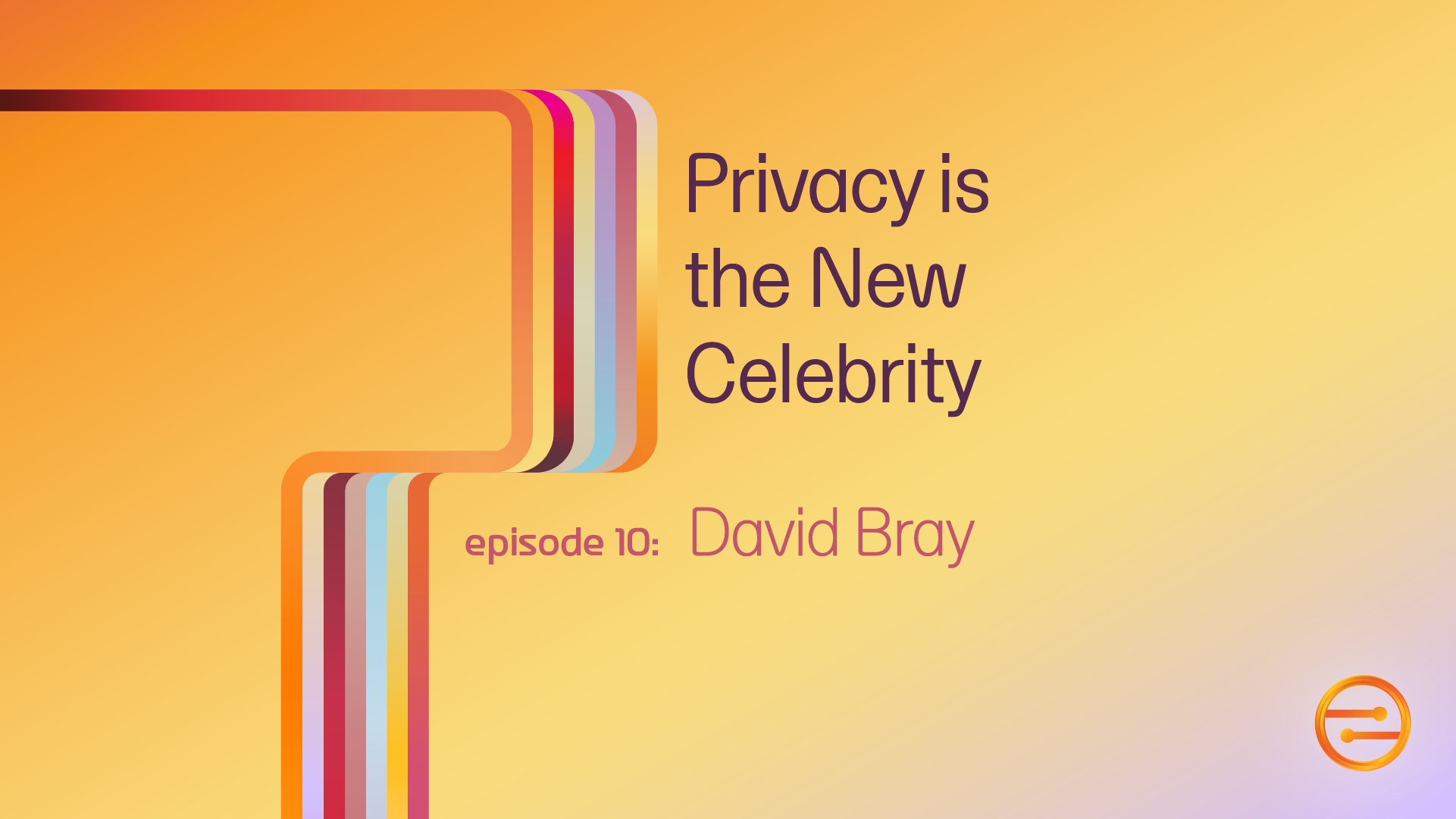Privacy is the New Celebrity EP 10: David Bray

Dr. David Bray speaks with Joshua Goldbard and takes us on a journey into the future of privacy, from ransomware to sith lords. Josh is the CEO and founder of MobileCoin, and David is a distinguished fellow at the Atlantic Council as well as the Stimson Center, and principal at Lead Due Adapt Ventures. David began working for the government at age 15 and has an impressive range of expertise including cybersecurity, disinformation, military and humanitarian issues, civil rights, energy, biotechnology, and more. David also sits on the board of the MobileCoin Foundation.

David ponders the last 150 years of technological innovation and explains how we’re currently witnessing four technological revolutions simultaneously. “We don’t just have one technological revolution going on, like one industrial revolution. We have what’s going on with data in algorithms and AI. We have what’s going on with synthetic biology. We have commercial space.” He explains how all of these things happening at the same time cause companies and communities to feel like they can’t keep up.
A worry of David’s is that, as the world becomes more turbulent, we will create autocratic societies out of a desire for a sense of certainty in a world where things are changing at a fast pace. Josh reminds us that only a sith deals in absolutes.
Josh and David discuss ransomware as one of the most significant threats of the 21st century. David explains what he imagines fighting ransomware while maintaining privacy could look like and points out that there are a few things to consider. He notes that we must recognize that the time between a company experiencing a ransomware attack and choosing to notify the government that it has happened (and they don’t always notify) can be upwards of 3 months. Whereas the time that an attacker has completed a successful ransomware attack and pivots to attack another company is only 30 minutes. David also notes that ransomware attacks are global in nature and that we are dealing with the issue on a large scale.
So how can we make it take longer for ransomware attackers to pivot their attacks on new companies? How can we decrease the certainty of payoff? David explains that finding ways to make ransomware a less attractive type of crime is key to reducing the number of successful attacks.
David discusses how the choke points of cryptocurrency, exchanges and merchants, are at least a start in handling ransomware, but that no one silver bullet will solve it.
He also advises that if a company gets hit with an attack, no matter how painful, it is best for the company to never pay the ransom. When companies pay, attackers now know the company is willing to pay and will likely attack again in the future. He advises that companies take the money they would have paid the attacker to rebuild and come back stronger and smarter.
You can check out Josh’s entire conversation with Dr. David Bray on Apple Podcasts, Spotify, or Buzzsprout. While you’re listening, don’t forget to subscribe to Privacy is the New Celebrity Podcast on your favorite streaming service.
If you enjoyed this blog, subscribe here for privacy commentary, product updates and news about upcoming events.